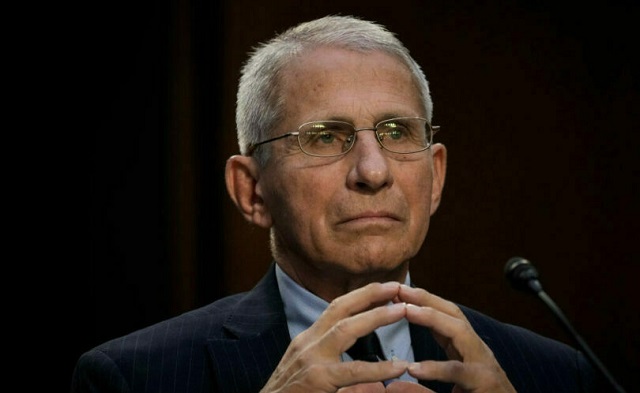The records in question are relevant to a major First Amendment case alleging collusion between the government and tech companies, Murthy v. Missouri (formerly Missouri v. Biden), which is currently in the U.S. Supreme Court.
We obtained a copy of the letter for you here.
The NCLA letter specified that the request pertains to all documents and electronically stored information, under Federal Rule of Civil Procedure 34.
Those named in the letter are former chief medical adviser to President Biden Dr. Anthony Fauci, his colleague from the National Institute of Allergy and Infectious Diseases (that Fauci headed during the pandemic) Dr. David Morens, Adam Kirschner of the U.S. State Department, and Google General Counsel Halimah DeLaine Prado, among others.
The letter recalled that Fauci is a defendant in the landmark First Amendment case, alleging that he and other government officials named in Murthy v. Missouri – including the president himself – engaged in unconstitutional censorship of social media around Covid issues such as lockdowns, mask mandates, and vaccines.
NCLA has joined the plaintiffs in Murthy v. Missouri and is now in that capacity requesting that Fauci, Morens, and others preserve all documents, including drafts and copies, and paper files maintained by their staff that are relevant to the case.
The letter lists examples of the sort of communications that, if deleted to further the interests of the defendants, would in effect unfairly influence the outcome of this pivotal case.
Additionally, the letter warns that Fauci and Morens were using private emails unlawfully, but that an act or attempt of deleting those messages would in itself be illegal.
In line with that, the letter says the request to preserve documents applies not only to communications made through official but also unofficial channels – including third-party messaging and social media apps.
NCLA’s own, direct “skin in the game” is spelled out in a statement that says, “Our clients, who include top doctors and scientists, were censored for social media posts that turned out to be factually accurate, depriving the public of valuable perspectives during a public health crisis.”
This refers to epidemiologists and co-authors of the Great Barrington Declaration, Jayanta Bhattacharya and Martin Kulldorff, Aaron Kheriaty, and Jill Hines. The statement added:
We’re optimistic that the majority will look at the record and recognize that this was a sprawling government censorship enterprise without precedent in this country, and that this cannot be permitted to continue if the First Amendment is to survive.




















